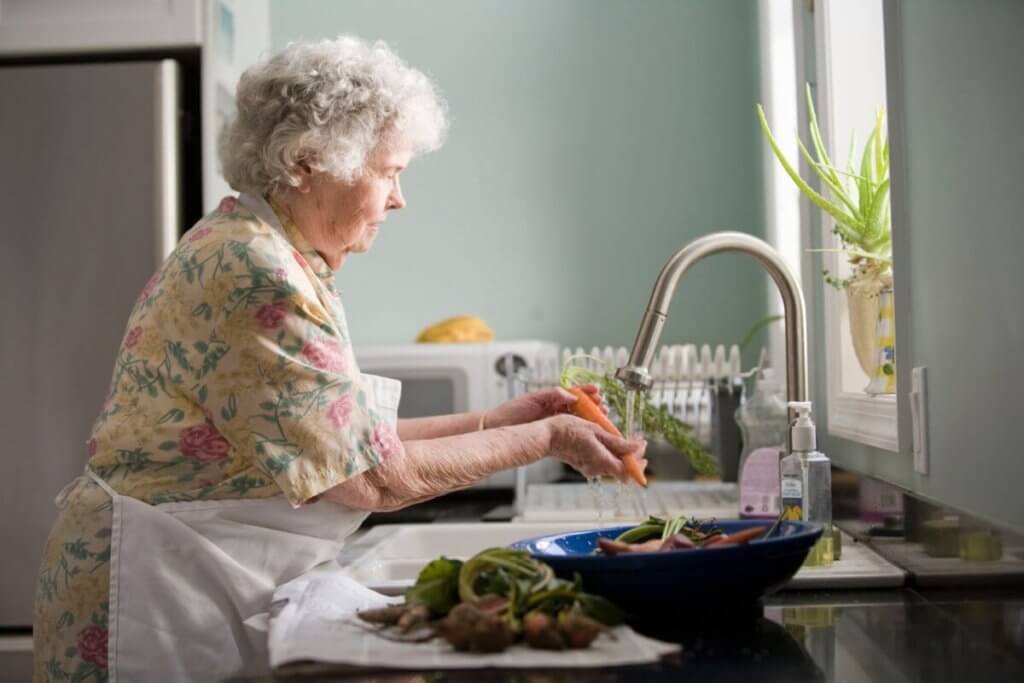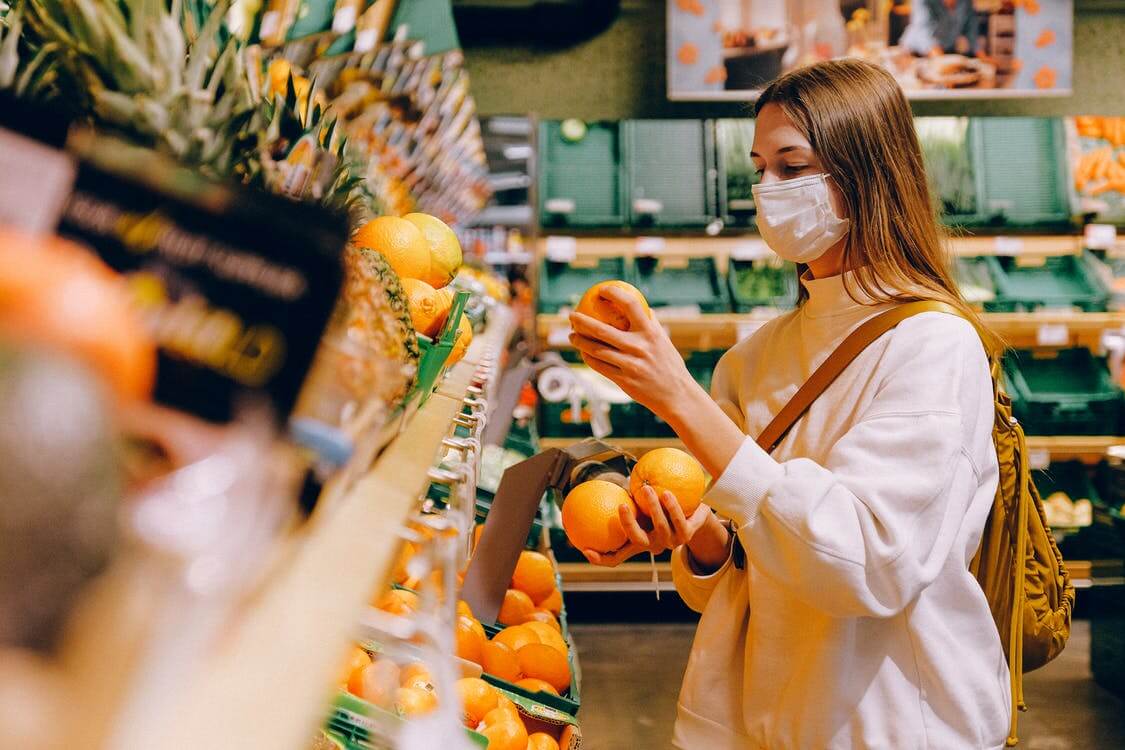BY COURTNEY INGALLS
Grocery stores are one of the few businesses that are able to stay open during the coronavirus pandemic. Even though you’re able to get out of the house and go shopping, you still need to be cautious about germs coming from other people around you. We’ve put together tips and tricks to keep you and your family safe while food shopping!
Want to find other ways to get food delivered to your house? Check out Family-Friendly Restaurants Offering Free Delivery and Food Deals in New York Amid Coronavirus
Plan your visit beforehand
In the past, many people have gone out food shopping with other members of their family and have taken the time to do some impulsive shopping. With this major health risk at hand, planning your visit before you step into the supermarket will limit your exposure to potential bacteria. Instead of going through every aisle and looking at all options of food you can buy, go through your kitchen at home and make a list of the things you need. Making a list will allow you to know exactly what you’re looking for and will make it easier for you to get in and out as fast as possible.
When you know you have to go to grocery shopping, you also should plan to go during off-peak times when you know that fewer people will be out. Whether you choose to go early in the morning or right before they close, this helps with social distancing that the CDC is recommending.
How to protect yourself in the store
The CDC is now recommending people wear either basic cloth or fabric masks while in public spaces in order to protect themselves. Although wearing masks is voluntary, it is a good idea to wear while at a grocery store. Many people are going in and out of the store each day and you will be coming in close contact with others when trying to go through aisles and waiting in lines to check out. To avoid breathing in droplets from the air, masks can help to prevent the spread.
When it comes to wearing gloves out in public, Karen Hoffmann, a registered nurse and the immediate past president of The Association for Professionals in Infection Control in Epidemiology tells CNBC that gloves could actually do more harm than good.
Experts have said that germs and bacteria actually stay on gloves longer than it would on people’s hands. “Unless you’re really experienced with putting gloves on and off, you may actually contaminate your hands more and therefore get a false sense of security,” Hoffmann said. Other extra measures to take while shopping is wiping down handles of shopping carts before using them, as well as using credit or debit cards instead of cash when you go to pay.
How to handle food
Even though the FDA says there is no current evidence to say the virus can be passed through food packaging, some people are still concerned about the spreading of germs. Containers such as glass and cans can be wiped down with disinfecting wipes to make you feel more comfortable and protected. If you choose not to wipe down your containers, make sure to always wash your hands after putting them away. When it comes to produce such as fruit and vegetables, washing the products with water and a small cup of vinegar helps kill fungus and keeps produce from deteriorating.

How to handle deliveries
If you’re still uncomfortable going out in public and you rather have your groceries delivered, make sure that you are having an “interactionless” delivery. Avoid direct handoff with the people who are dropping off the food to you. Arrange to have your items delivered to your doorstep or a place nearby that you can pick it up. If you’re using a delivery service online, it is better to tip the delivery person online via an app instead of giving them a cash tip. Money can carry germs that you don’t want to pass onto others and it also involves close contact with the delivery person that you should try and avoid.
This story first appeared on newyorkfamily.com.


































